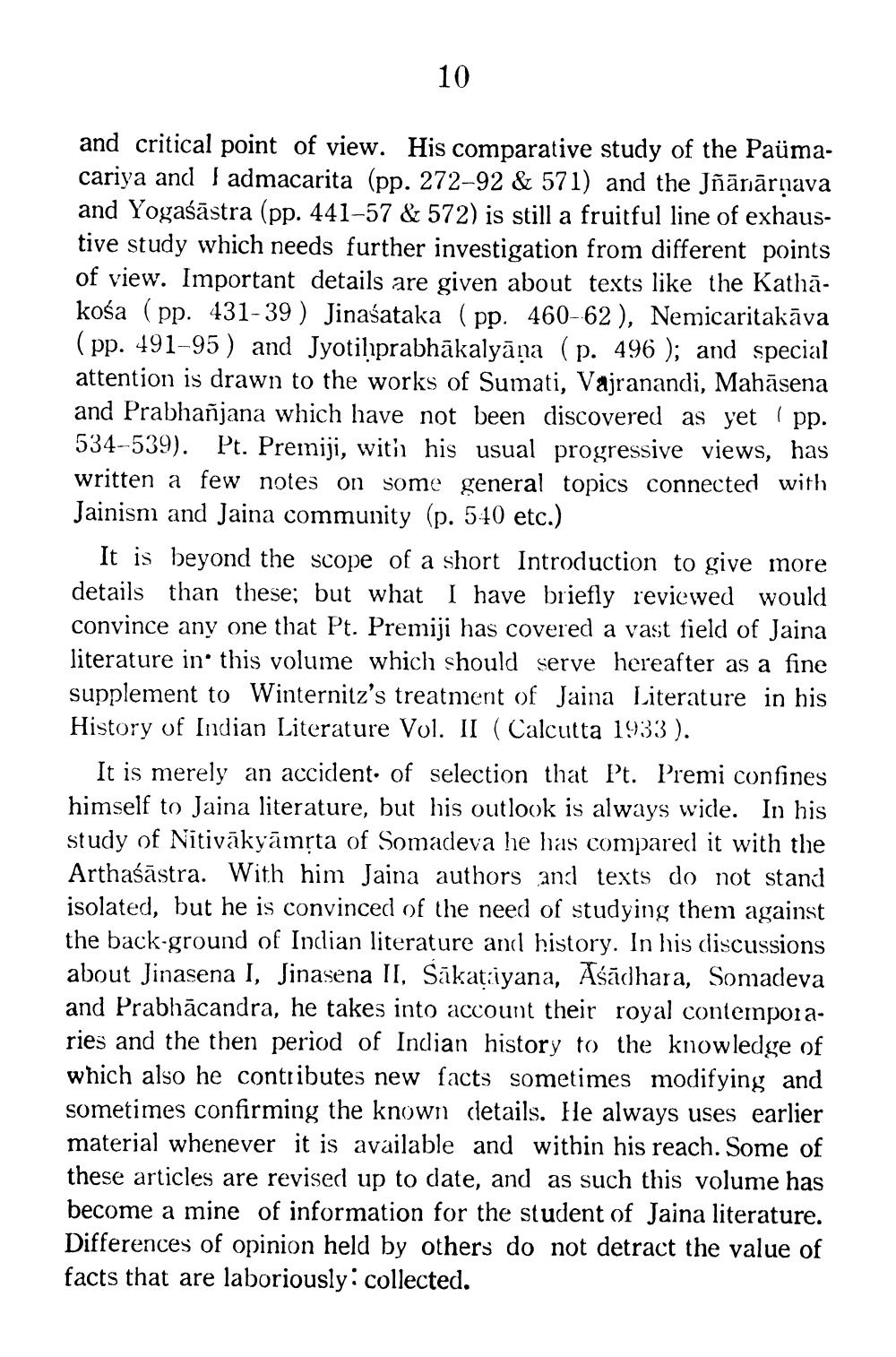________________
and critical point of view. His comparative study of the Paümacariya and I admacarita (pp. 272-92 & 571) and the Jñānārnava and Yogaśāstra (pp. 441-57 & 572) is still a fruitful line of exhaustive study which needs further investigation from different points of view. Important details are given about texts like the Kathākośa (pp. 431-39 ) Jinašataka ( pp. 460-62), Nemicaritakāva (pp. 491–95) and Jyotiḥprabhākalyāna (p. 496 ); and special attention is drawn to the works of Sumati, Vajranandi, Mahāsena and Prabhañjana which have not been discovered as yet ( pp. 534-539). Pt. Premniji, with his usual progressive views, has written a few notes on some general topics connected with Jainism and Jaina community (p. 510 etc.)
It is beyond the scope of a short Introduction to give more details than these; but what I have briefly reviewed would convince any one that Pt. Premiji has covered a vast field of Jaina literature in this volume which should serve hereafter as a fine supplement to Winternitz's treatment of Jaina Literature in his History of Indian Literature Vol. II ( Calcutta 1933 ).
It is merely an accident. of selection that Pt. Premi confines himself to Jaina literature, but his outlook is always wide. In his study of Nitivākyāmrta of Somadeva he has compared it with the Arthaśāstra. With him Jaina authors and texts do not stand isolated, but he is convinced of the need of studying them against the back-ground of Indian literature and history. In his discussions about Jinasena I, Jinasena II, Sākat:iyana, Ašādhara, Somadeva and Prabhācandra, he takes into account their royal contemporaries and the then period of Indian history to the knowledge of which also he contributes new facts sometimes modifying and sometimes confirming the known details. He always uses earlier material whenever it is available and within his reach. Some of these articles are revised up to date, and as such this volume has become a mine of information for the student of Jaina literature. Differences of opinion held by others do not detract the value of facts that are laboriously: collected.




